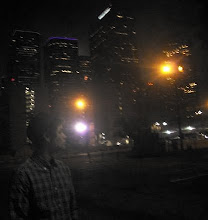The following quote illustrates the tension between public perception of law versus the systems that actually exist: “Sure, I know I was breaking the law but there seems to be things more important than the law, at least to me in my private tragedy.” Gilbert v. State,
The quote comes from a tragic case. The appellant, 75 year-old Roswell Gilbert, killed his wife of 51 years and was given what amounted to a life sentence in a lower Florida court. On appeal, the court held that good faith euthanasia is not a defense to murder. The court of appeal affirmed the lower court decision.
Roswell described his motivation for the killing as follows:
"As she lay on the sofa, she said, 'Please, somebody help me. Please, somebody help me.' [...]
Who's that somebody but me, you know, and there she was in pain and all this confusion and I guess if I got cold as icewater [sic] that's what had happened. I thought to myself, I've got to do it, it's got to be mine, I've got to end her suffering, this can't go on."
Id. The court recognized the extraordinary circumstances around the murder. Even though the court knew of Roswell's motives, there was nowhere to put those factors in the weighing of guilt or innocence:
"[T]his aged defendant has been a peaceful, lawabiding [sic] and respected citizen up until this time. No one has suggested that he will again kill someone or enter upon a criminal career. However, the absolute rigidity of the statutory mandatory minimum sentences do not permit consideration of these factors or, for that matter, they, different from the sentencing guidelines, do not take into account any mitigating circumstances."Id., 1192. There is a missing element of humanity in this particular instance of law. Was there justice in sentencing this man to jail for life? Should his motives have mattered legally despite no precedent or statute supporting such a legal theory? Should the populace bear the responsibility of shaping the legal system through political action?





